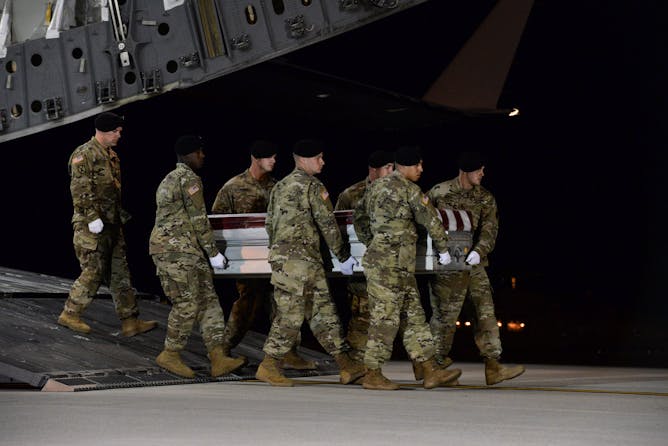|
Instead of revising its military rules of engagement in Niger, the US should ask itself how it can contribute to peace efforts that already exist in the region. Yvan Guichaoua and Andrew Lebovich argue that America should also understand that without genuine care for local civilians, the fire along the Mali-Niger border will only grow hotter and more difficult to contain.
Tanzania’s President John Pombe Magufuli has been in office for two years. He’s won admiration for bringing about dramatic changes, particularly in the war against wastage and corruption. But on the flipside, writes Dan Paget, he could also be remembered as the president who declared war on democracy.
Research at the South African Large Telescope (SALT) illustrates just how hard it is to make increasingly complex telescope control rooms user-friendly. Christopher Justin Hendrickse explains how simple adjustments to things like multiple computer screens freed up astronomers to focus on complex questions about the universe.
|

A US army team carry the remains of Sgt. Dustin Wright, one of the soldiers killed in Niger.
Reuters/Aaron J. Jenne/US Air Force
Yvan Guichaoua, University of Kent; Andrew Lebovich, Columbia University
If the US, simply focuses on trying to hunt down jihadist leaders in Niger it will be missing an opportunity to address the underlying causes of violence in the region.
|
Politics + Society
|
-
Dan Paget, University of Oxford
Tanzania’s President John Magufuli has brought dramatic change and his intolerance for corruption won him worldwide admiration. But his repressive means to stay in power are being questioned.
|
|
Science + Technology
|
-
Christopher Justin Hendrickse, Cape Peninsula University of Technology
Technology has redefined astronomy. Pioneering telescope designs have allowed astronomers to unravel ever more complex questions about the universe and its mysteries.
|
|
Arts + Culture
|
-
Nuraan Davids, Stellenbosch University
With its "Pro hijab" Nike has mainstreamed what is generally considered as an oppressive and marginalised garment.
|
|
From our international editions
|
-
James L. Gelvin, University of California, Los Angeles
Sayfullo Saipov, the suspect in the Manhattan bike path attack, wasn't a devout Muslim. He cursed and came late to prayers. A terrorism expert explains why such a man may want to be a martyr.
-
Ethan Lewis, Dartmouth College
The president is urging lawmakers to end the program in the aftermath of the deadliest attack in New York City since 9/11. Doing so would be a mistake.
-
Emily Thomas, Durham University
Religions tend to portray God as deeply concerned with humans, yet we seem hugely unimportant in the vast scheme of things.
-
Harald Fox, Lancaster University
Cosmic particles called muons may revolutionise many areas of science.
|
|